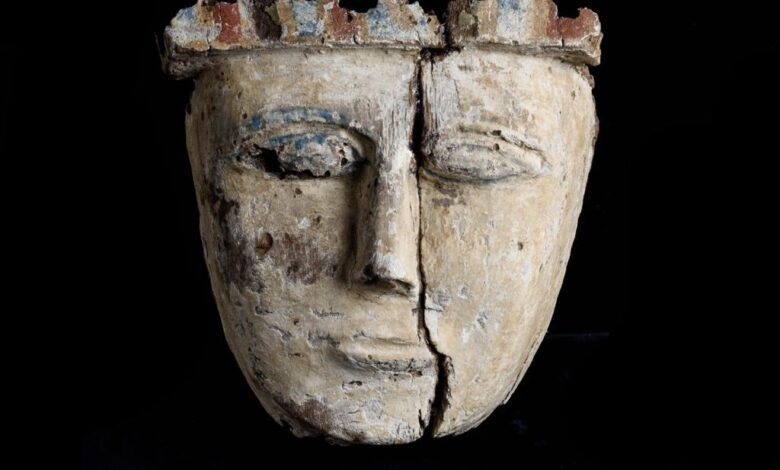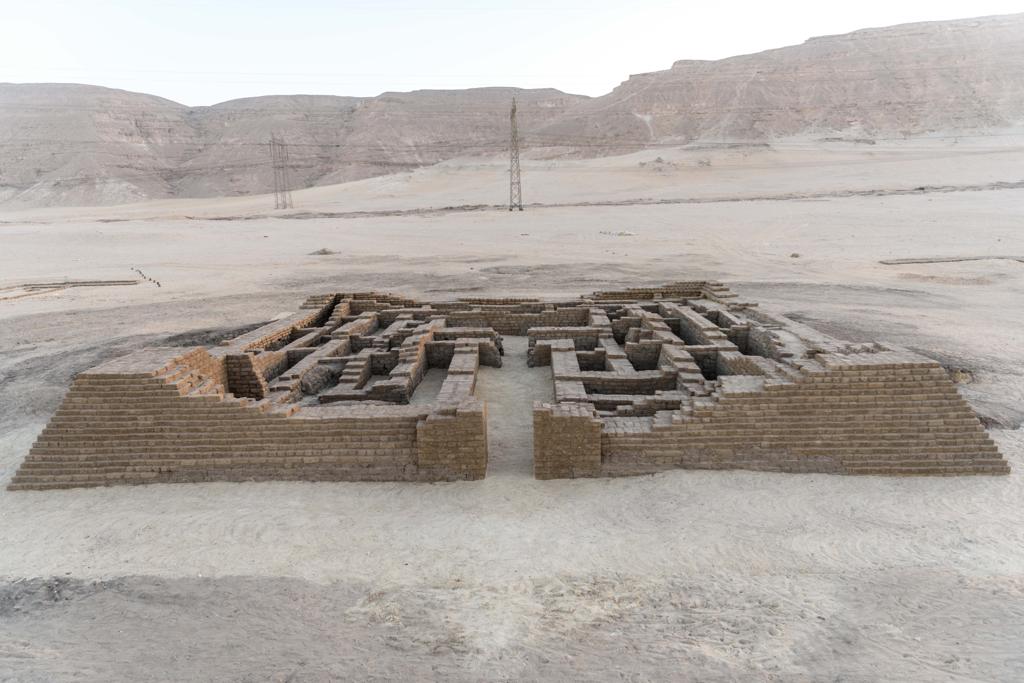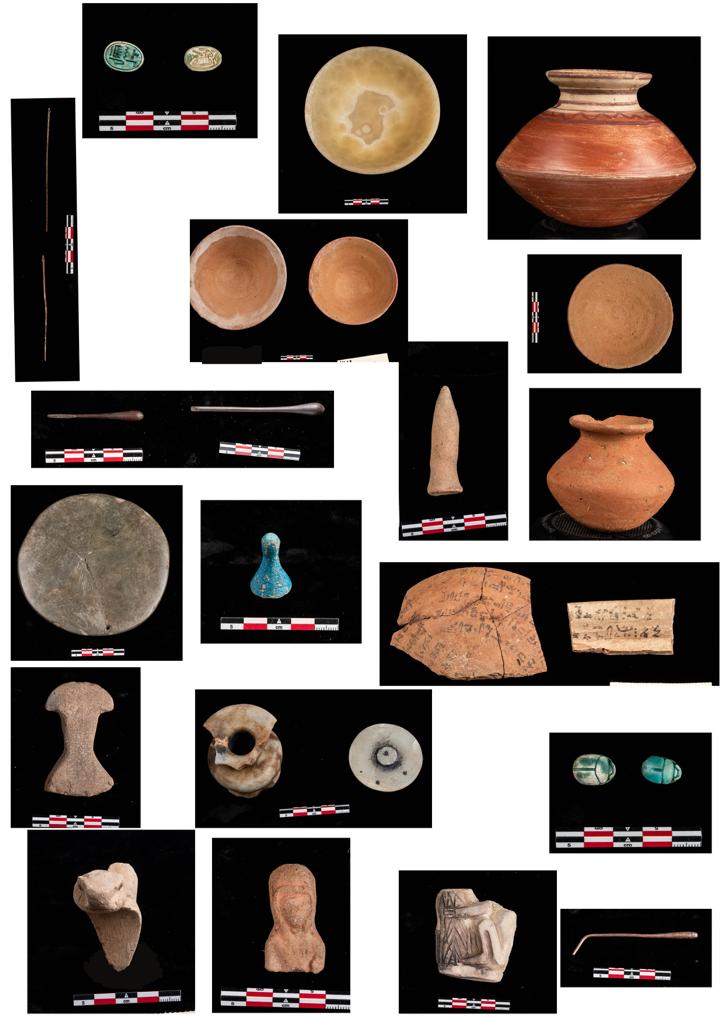
The joint Egyptian-US archaeological mission operating in the south of Abydos has completed the restoration and maintenance of the pyramid of Queen Titi Sheri, alongside uncovering a cemetery from the era of King Ahmose.
The Secretary General of the Supreme Council of Antiquities, Mostafa Waziri stressed the importance of this project due to the great historical importance this pyramid holds as the last pyramid built for a queen in ancient Egypt.
He also noted the remarkable construction method compared to pyramids built of mud bricks.
Waziri added that the mission also uncovered a cemetery from the era of King Ahmose alongside ruins that might have been houses or service buildings dating back to the same era, while carrying out archaeological excavations in the area to the north of the pyramid of Ahmose in Abydos.

The restoration of the pyramid of Queen Titi Sheri aims to protect it in the long term by strengthening its foundations, explained the Head of the Egyptian Antiquities Sector at the Supreme Council of Antiquities Ayman Ashmawy.
The head of the US side of the mission, Deborah Fishack, added that they carried out cleaning and excavation work using accurate surveying equipment, and also manufactured a wooden structure on the original surface of the pyramid tilted at an angle of 63 degrees.
She stated this was done in order to ensure that the angle of inclination of the walls is preserved when restoring and adding row.
The final height of the pillars, which became the highest parts of the building, are between 1.5 and 2.5 meters, Fishack said.
The visible surface of the new bricks was treated in a way that made it compatible with the original bricks of the pyramid, she added.
The restoration of Queen Titi Sheri pyramid is part of the management and conservation of the southern Abydos site, carried out under the supervision of the Egyptian-US mission.

Work on the site began in 2018 by a team of antiquities inspectors in Sohag and Abydos.
Princeton University joined the team to support and continue its efforts to protect all archaeological buildings in the region.
In 2022, the joint mission built a wall of more than 1,500 meters in order to stop the dangers of modern cemetery expansions, in addition to removing encroachments and removing more than 10,000 cubic meters of garbage dumped on the site.




